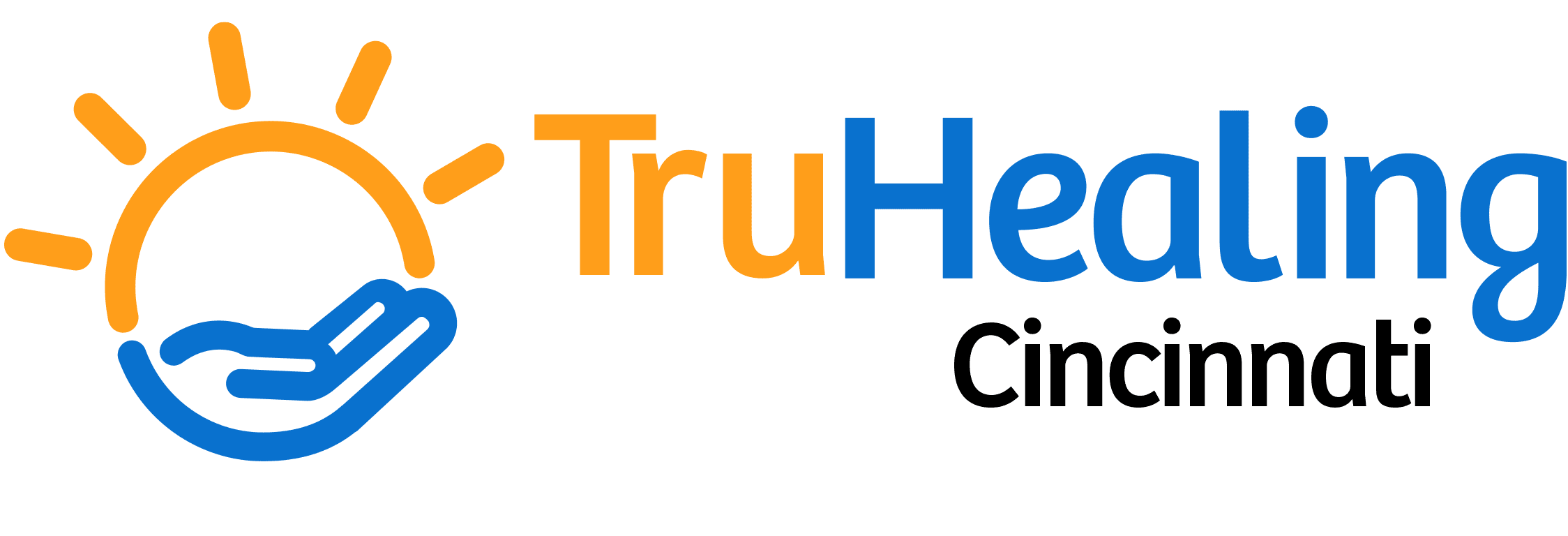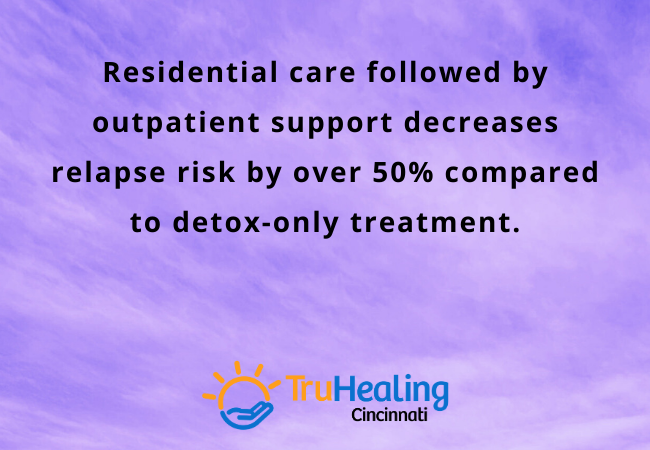Making the decision to enter a Residential Treatment Program in Cincinnati, Ohio is one of the most courageous steps you can take toward a healthier, substance-free life. But many people hesitate because they don’t know what to expect.
What will your days look like? Who will you meet? How will you feel?
At TruHealing Cincinnati, we believe in clarity, compassion, and preparation. This blog will take you through a day-by-day overview of the first 30 days in residential treatment, so you can feel more confident as you begin your healing journey.
Week 1: Orientation, Detox, and Stabilization
The first week is about physical and emotional stabilization. You’re entering a new space, with new people, and you’re starting to let go of substances that may have controlled your life.
Days 1–3: Intake and Medical Detox
- Comprehensive medical and psychological assessment
- 24/7 monitoring in our Medical Detox Program Cincinnati, Ohio
- Medications to ease withdrawal symptoms
- Hydration, nutrition, and rest
- One-on-one check-ins with your case manager
Days 4–7: Orientation and Emotional Grounding
- Introduction to your clinical team and peers
- Orientation to the daily schedule and facility
- First group therapy session (introductory)
- Individual therapy begins
- Light activity: walks, meditation, journaling
Week 2: Building a Foundation for Recovery
You’ll begin to explore the roots of your addiction and start building tools to manage emotions, triggers, and cravings.
Days 8–14: Core Programming Begins
- Daily group therapy (CBT, DBT, relapse prevention)
- Continued individual therapy
- Psychoeducational workshops on addiction and brain chemistry
- Nutritional counseling and recovery-friendly meals
- Optional holistic therapies (yoga, art therapy, mindfulness)
Week 3: Digging Deeper into Therapy
Now that you’re feeling physically and emotionally stronger, your therapy intensifies. You may feel vulnerable — that’s a sign you’re doing the work.
Days 15–21: Emotional Breakthroughs
- Deep trauma processing (if appropriate)
- Family therapy sessions (virtual or in person)
- Role-playing relapse scenarios
- Group discussions on shame, guilt, and forgiveness
- Increased physical activity to reduce stress and boost mood
Week 4: Preparing for Life Beyond Residential Care
As your 30-day stay approaches its end, you and your care team begin planning your next steps. Whether you’re continuing care through a Partial Hospitalization Treatment in Cincinnati, Ohio or stepping into an Intensive Outpatient Treatment in Cincinnati, Ohio, a smooth transition is key.
Days 22–30: Transition Planning
- Create a personalized aftercare plan
- Explore sober housing or outpatient options
- Identify local recovery groups or 12-step meetings
- Resume family involvement
- Final progress evaluation with your case manager
A Typical Daily Schedule in Residential Treatment
While each day brings new therapy topics and growth opportunities, structure is key. Here’s what a “normal” weekday might look like:
| Time | Activity |
|---|---|
| 7:00 AM | Wake-up and morning routine |
| 7:30 AM | Breakfast |
| 8:30 AM | Morning meditation or light movement |
| 9:00 AM | Group therapy |
| 11:00 AM | Psychoeducation workshop |
| 12:30 PM | Lunch |
| 1:30 PM | Individual therapy |
| 3:00 PM | Skills building or relapse prevention |
| 5:30 PM | Dinner |
| 7:00 PM | Evening group (check-in or AA/NA) |
| 9:00 PM | Journaling / wind-down |
| 10:00 PM | Lights out |
How Residential Treatment Supports Long-Term Success
Residential treatment doesn’t just remove you from triggers — it teaches you how to cope, communicate, and thrive in real life. Our 30-day program at TruHealing Cincinnati, a trusted Addiction Treatment Center Cincinnati, Ohio, focuses on the whole person: body, mind, and spirit.
Key Benefits:
- 24/7 support in a drug- and alcohol-free environment
- Integrated care for co-occurring mental health disorders
- Peer connection and community-building
- Medical support to address physical health concerns
- Structured routine to reintroduce stability and self-discipline
What Happens After the First 30 Days?
After residential treatment, the journey continues. Many clients step down into:
➤ Partial Hospitalization Treatment in Cincinnati, Ohio
Structured, full-day treatment with a return home in the evening. Ideal for those needing continued support but with more independence.
➤ Intensive Outpatient Treatment in Cincinnati, Ohio
Part-time treatment that fits around school, work, or caregiving responsibilities. A great step for reintegration into daily life.
At TruHealing Cincinnati, we guide you through every transition to ensure your foundation remains strong.
Emotional Highs and Lows — What to Expect in the First 30 Days
One of the most important things to prepare for in residential care is the emotional rollercoaster that often happens during the first month.
What you might feel:
-
Day 1–7: Anxiety, confusion, or sadness as you adjust to the environment and come off substances.
-
Day 8–14: Emotional vulnerability as your mind begins to clear and buried feelings surface.
-
Day 15–21: Breakthroughs in therapy, deeper insights, and increased self-awareness.
-
Day 22–30: A mix of hope and fear as you look toward discharge and life beyond treatment.
Our team at TruHealing Cincinnati, a leading Addiction Treatment Center in Cincinnati, Ohio, is trained to help you navigate each emotional shift with compassion and clinical expertise.
The Power of Peer Support in Residential Recovery
You’re not alone in treatment — and that’s one of the biggest assets of residential care. Peer support becomes a cornerstone of the healing process.
Benefits of Peer Connection:
-
Shared experience reduces feelings of shame and isolation
-
Group therapy offers insight and accountability
-
Lifelong friendships often begin in treatment
-
Support continues in alumni and aftercare groups
Whether you’re in group sessions or evening check-ins, you’ll find comfort in knowing others are walking the same path. This is especially important in cities like Cincinnati, where Substance Abuse Treatment in Cincinnati, Ohio must reflect the needs of the local community.
Life Skills and Routine: Rebuilding from the Ground Up
Addiction often disrupts daily life — eating patterns, sleeping habits, work ethic, and relationships. In residential treatment, part of your healing involves learning how to live again.
Core Life Skills You’ll Develop:
-
Time management and personal hygiene routines
-
Financial literacy and budgeting
-
Communication and conflict resolution
-
Nutrition, exercise, and wellness habits
-
Goal setting and future planning
These skills are essential when stepping down into Partial Hospitalization Treatment in Cincinnati, Ohio or Intensive Outpatient Treatment in Cincinnati, Ohio, where you’ll face more daily responsibilities.
Healing the Spirit — The Role of Mindfulness and Spirituality
You don’t need to be religious to experience spiritual healing. For many, addiction creates a deep sense of emptiness or loss of purpose. Residential treatment helps restore that.
Practices that Support Spiritual Growth:
-
Guided meditations and breathwork
-
Nature walks and grounding exercises
-
Gratitude journaling
-
Optional faith-based recovery resources
-
Reflection and purpose-finding workshops
These activities create space to reconnect with your values and vision — a key step in sustainable recovery from Drug Addiction Treatment in Cincinnati, Ohio and co-occurring mental health struggles.
Conclusion
The first month of treatment isn’t just about detoxing your body — it’s about reshaping your entire future. Through structured therapy, compassionate care, and ongoing support, TruHealing Cincinnati provides the safety and guidance you need to take your life back.
If you or someone you love is ready to begin healing, we’re here for you. Call us today at 513.643.9118 to learn more or begin admissions into our Residential Treatment Program in Cincinnati, Ohio.
Frequently Asked Questions
Will I have access to medical care during residential treatment?
Yes. We provide medical monitoring, medication management, and mental health support throughout your stay.
Can my family be involved during the program?
Yes. Family therapy and education are essential components of our program, either in person or virtually.
What if I’m not ready to leave after 30 days?
We offer extended care and seamless step-down options, including PHP and IOP.
Will my insurance cover residential treatment?
Many plans cover some or all of treatment. Our team can verify your benefits quickly and confidentially.


